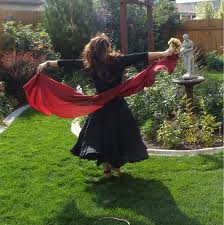 What began as a study of conditioning, the residue or leftovers of core issues or vasanas, has turned into a study of completion and realization.
What began as a study of conditioning, the residue or leftovers of core issues or vasanas, has turned into a study of completion and realization.
I’m OK letting things wander where they do. There seems to be a steady flow of inspiration. Where it’s coming from is anybody’s guess. Where it’s going to is a foregone conclusion: Ascension.
Please allow me to look at completion and realization.
Completion, it seems to me, is how we exit our vasanas and conditioning. Realization is the level of knowledge we need to have to lend the required power to our declaration of completeness to have it result in committed action on our part.
Our commited action towards others is easier than our committed action on our own behalf. Realization is what provides the motive power to act on our own behalf. That’s how it is for me.
Completion is a state of being. We usually overlook it in our discussion of the divine qualities in favor of talking about balance or equanimity or serenity. But, as far as I can see, all of these are facets or results of completion.
When we’re looking for ways we can contribute to our own purification, being complete is something that lies within our power to create. If I were to say, “Love,” you might say, “Well, I can’t right now. I don’t feel it.”
Not so with completion. Most of us are familiar with it. We feel complete when we’ve stuffed ourselves at Christmas dinner. We feel complete when we’ve used a new toy long enough that the attraction has worn off. So we know what it feels like.
We discover that completion is within our power to declare and to feel. There’s nothing esoteric about it. Most times we don’t feel it because we don’t want to be complete. There’s energy in our dramas. They ward off boredom, etc.
Then comes a moment when we’d prefer to be complete. At that moment, if completion is for us not simply intellectual knowledge, or experiential knowledge, but realized knowledge, then we can call completion forth by our own declaration.
Just as you might call courage forth at some other moment. Or “get up your nerve” to ask someone on a date. We call forth the attitude of completion in ourselves and, if our willing is developed, we will ourselves complete in that moment by declaring it. I am complete. And so it is.
It is a simple cutting of attachment and that lies within our power.
Nonetheless, one is either complete or one is not. It can’t be faked. We can say “I’m complete” all we want, but if we’re simply speaking from intellectual knowledge, our repetition of the sentence won’t make us complete or carry much weight.
(Concluded in Part 2.)

